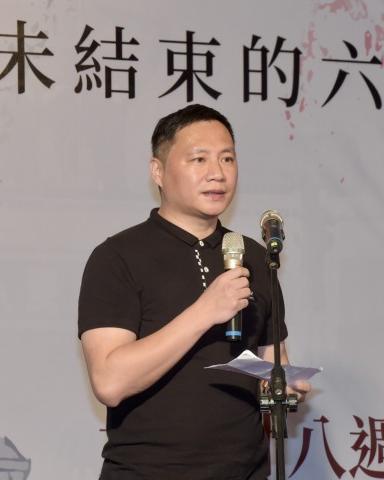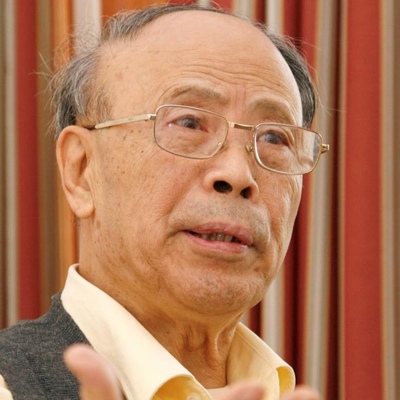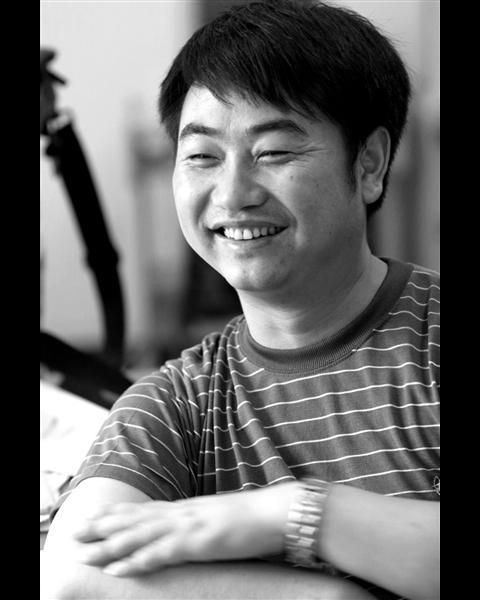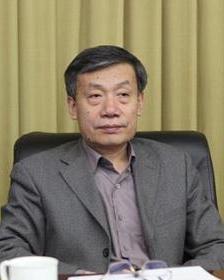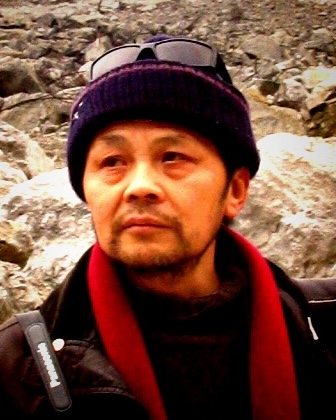
Li Xun
Li Xun (1948- ), a scholar of the Cultural Revolution, graduated from the Department of Chinese Language and Literature of the Shanghai Adult After-Hours University. From 1979 to 1992, Li worked at the Shanghai Federation of Trade Unions. Li has long studied the Cultural Revolution in Shanghai. In 1996, she co-authored and published The Big Downfall: the Rise and Fall of the Shanghai Rebel Workers through the China Times Publishing Company in Taiwan. She was invited by Elizabeth J. Perry, an American scholar on China, to be a visiting scholar at the University of California, Berkeley, where she co-authored with Perry an English book, Proletarian Power: Shanghai in the Cultural Revolution, in 1997. After ten years in the United States, Li returned to China to continued her research on the Cultural Revolution, collecting, reading, and analyzing a large amount of historical materials, conducting in-depth interviews with more than 120 people, which led to the publication of [The Age of Revolutionary Revolt: Historical Manuscripts of the Cultural Revolution Movement in Shanghai](https://shop.oupchina.com.hk/products/%E9%9D%A9%E5%91%BD%E9%80%A0%E5%8F%8D%E5%B9%B4%E4%BB%A3-%E4%B8%8A%E6%B5%B7%E6%96%87%E9%9D%A9%E9%81%8B%E5%8B%95%E5%8F%B2%E7%A8%BF-%E5%85%A9%E5%8D%B7%E6%9C%AC), through Oxford Press in 2015. The book has been widely praised by the academic community.

Tan Chanxue
Tan Chanxue (1934—2018),a native of Kaiping, Guangdong Province, was labeled a Rightist in 1957 when she was a student at the Department of Chinese Literature of Lanzhou University. In August 1958, she and 41 other Rightist students and teachers of Lanzhou University were exiled to Tianshui County, Gansu Province, for laojiao, or re-education through labor. In 1960, during the peak of the Great Famine, students labeled Rightists at Lanzhou University, such as Zhang Chunyuan (see separate entry) and Gu Yan (see separate entry), decided to publish an underground publication, Spark, to expose the truth and comment on current affairs. Other students, including Tan Chanxue and the poet Lin Zhao (see separate entry), a student at Peking University, were also involved. The core members of Spark were later labeled as a counter-revolutionary group. Tan Chanxue was sentenced to 14 years in prison for her involvement in Spark, released in 1973 and sent to work in a factory. After her rehabilitation in 1980, Tan taught at the Jiuquan Normal University, then at the Dunhuang Academy, from which she retired in 1998. She moved to Shanghai and passed away there on June 1, 2018.
Starting in 2004, Tan Chanxue dedicated herself to documenting the history of Spark and the era that gave birth to it. Throughout the years, she traveled to Lanzhou and Tianshui to collect information and documents, and completed and published the book Spark: The Rightist Anti-Revolutionary Group Case at Lanzhou University. She and her friends also typed and edited Lin Zhao's writings in prison, some written with her own blood, into the Lin Zhao Anthology, which has become an important historical record.

Jiang Xun
Jiang Xun (1947 - October 13, 2021) was a Hong Kong media professional. Born in Shanghai, Jiang worked for *Wen Wei Po* newspaper and *Literature Press* newspaper before moving to Hong Kong in 1994, where he served as senior special correspondent and deputy editor-in-chief of Hong Kong's *Asia Weekly*, as well as director and chief editor of Republic (Hong Kong) Publishing Limited. He was a member of the Hong Kong Writers' Association and joined the Chinese Writers' Association in 1993. Jiang died of an acute illness on October 10, 2021.
Jiang was the author of more than 10 books, and was the recipient of numerous literary and journalistic awards in mainland China and Hong Kong. Jiang had written reports on the inner workings of Operation Yellowbird, which helped the Chinese dissidents who participated in the 1989 democracy movement to escape arrest by the Chinese government by facilitating their departure overseas via Hong Kong.
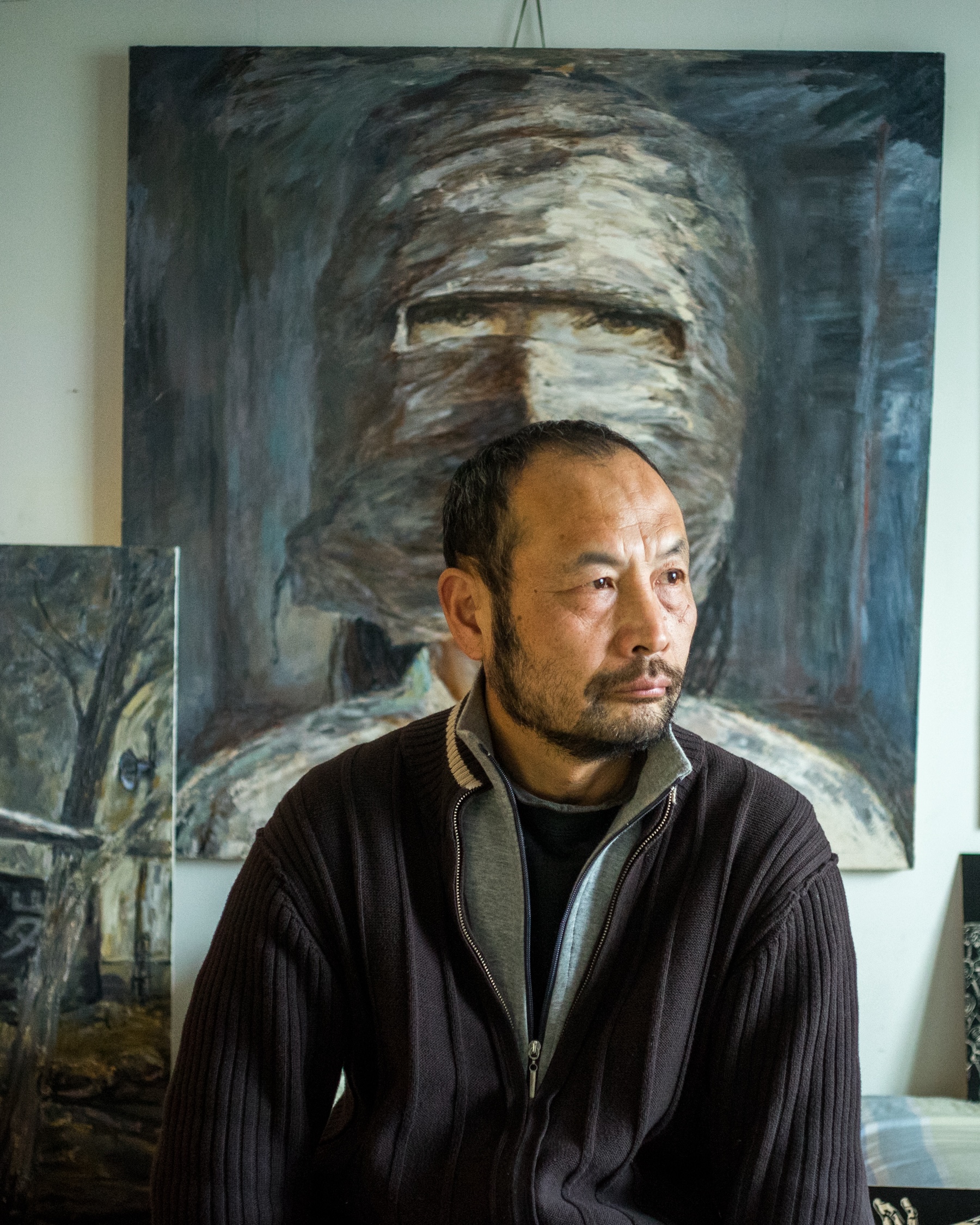
Hu Jie
Hu Jie (1958-), Chinese documentary filmmaker. Hu Jie was born and raised in a military family in Jinan, Shandong Province. He joined the military in 1977, graduated from the Shanghai Air Force University of Political Studies in 1986, and went to the People's Liberation Army Academy of Art to study oil painting for two years. In 1992, he was discharged from the military, and briefly worked at the Jiangsu Branch of Xinhua News Agency as a film and television editor. In 1995, he made his first documentary Yuanmingyuan Artist Village, which documented the forced dissolution of the village where he lived in 1993.
In Hu Jie's own view, his works can be divided into three categories: 1) contemporary reality that focuses on ordinary people, such as *Remote Mountain* (about coal miners), *The Female Matchmaker* (about marriage in a remote village), and *Mountain Songs in the Plain* (about abducted women); 2) historical documentation aiming to fill in the blanks of the official narratives about the Anti-Rightist campaign, the Cultural Revolution, and the Great Famine, including *Searching for Lin Zhao's Soul*, *Though I am Gone*, and *Spark*; 3) documentation of citizen activism, in collaboration with feminist scholar and activist Ai Xiaoming (see separate entry), including *The Epic of the Central Plains*, *Garden in Heaven*, and *Care and Love*. Hu Jie has no investors and receives no foreign funding, and he pays for his own filming costs. Due to their political sensitivity, most of his works cannot be publicly screened in China, and are only circulated underground or screened outside the country.
In producing his historical documentaries, Hu Jie hunts down survivors, finds rare written material, unearthing witnesses and documents that tell in excruciating detail how the events unfolded. He is also very much present as a narrator and judge in those films, clearly taking sides with the victims of Maoist China. Almost all of his films come across as radically low-tech — largely because he works alone, but also to give the feeling of authenticity and discovery. (Read more at <https://www.nytimesn7cgmftshazwhfgzm37qxb44r64ytbb2dj3x62d2lljsciiyd.onion/2020/06/28/movies/hu-jie-films.html> and <https://www.nybooks.com/online/2015/05/27/chinas-invisible-history-hu-jie/>).
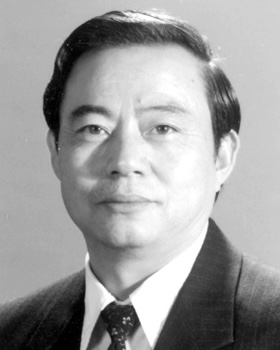
Zhang Wanshu
Zhang Wanshu (1938-), also known as Zhang Qinghai, is a journalist and writer. Born in Feixi County, Anhui Province, Zhang began his literary career in 1958. In 1964, he became a reporter for the Anhui branch of Xinhua News Agency, and later served as the director of news gathering and editing as well as vice president; in 1983, he was transferred to the Xinhua News Agency headquarters and served as deputy director of the Domestic News Department, and later as a director. In 1992, he became president and Editor-in-Chief of the Xinhua Publishing House. Zhang is also a member of the China Writers Association and was a deputy to the 6th National People's Congress.
Zhang is the author of several books of poetry and prose. His best-known poem, “Huangshan Pine,” was written in 1962, which praises the Chinese people during the Great Famine. The book <i>Introduction to the Classics of Red Poetry</i> published by Wuhan University Press called Zhang Wanshu an outstanding patriotic poet and his works are considered as “red” poems–in other words, pro-CCP.
However, as the director of the Domestic News Department of China's most authoritative news agency in 1989, Zhang witnessed the June Fourth massacre and directly handled first-hand accounts of Xinhua News Agency's correspondents throughout the country.
Around the 20th anniversary of June Fourth in 2009, Zhang’s book <i>The Big Bang of History: June Fourth Movement Record</i> was published in Hong Kong. It provides an authoritative chronology of events leading up to the bloodshed. The well-known independent historian Yang Jisheng, who was also a reporter for the Xinhua News Agency at the time, considered the authenticity of Zhang Wanshu's accounts to be beyond doubt. He said, “His accounts are true and reliable because he was informed and in the know. He was the director of the Domestic News Department at the time and knew what was going on at the upper levels, and he participated in the discussions of the Xinhua News Agency's leadership group every night.”

Wei Zidan
Wei Zidan (pen name of Wei Liyan), was born in Anyang County, Henan Province in 1933. In 1951, he started to work as a middle school math teacher in Anyang. In 1957, Wei was labeled an Extreme Rightist and dismissed from public service, and was exiled for re-education through labor in Henan Province from 1958 to 1962. In 1978, Wei was rehabilitated and resumed teaching, retiring in 1993. He later moved to the United States. Wei Zidan is the author of *Revisiting 1957*, a record of and reflection on the 1957 Anti-Rightist Campaign.
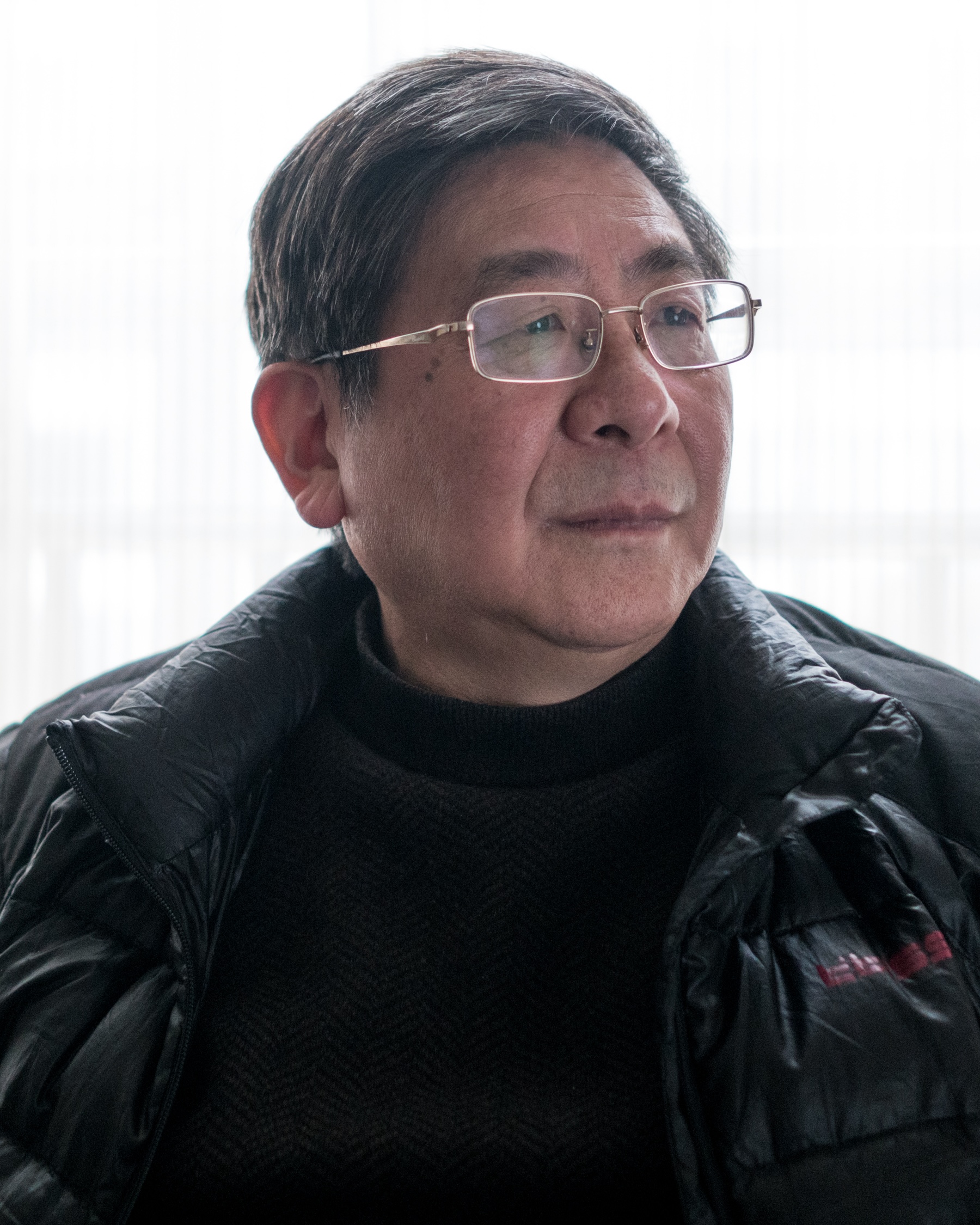
Tan Hecheng
Tan Hecheng (b.1948—), a native of Changsha, Hunan Province, writer and editor.
Tan's father was a Kuomintang general; his mother, whose parents participated in the 1911 revolution, was a delegate to the Republic of China’s national parliament and was persecuted during the Cultural Revolution.
Tan joined a group of Red Guards traveling around China during the Cultural Revolution and later studied carpentry. In 1978, when university exams resumed, Tan was admitted to the Changsha University of Science and Technology, where he developed an interest in writing.
After graduation, he was assigned to work in a factory. After winning a prize for his reportage literature (baogao wenxue) work, he was recruited by one of the editors of Furong, or Hibiscus, a Changsha literary magazine.
In 1984, CCP’s reformist leader Hu Yaobang sent more than 1,300 officials to Dao County to investigate the mass killings that occurred in 1967. Tan was sent along with the team for part of its stay. As a writer for a state publication, Tan gained a number of documents unearthed during the investigation and conducted interviews, based on which he wrote an article of 100,000 characters.
His editors, however, said it could not be published because the political climate was changing with the start of the "bourgeois liberalization" campaign, which eventually led to Hu's fall. Tan decided to continue his investigation and traveled to Dao County many times to do follow-up interviews.
In 2010, he published *Blood Myths: the 1967 Mass Killings in Dao County, Hunan Province during the Cultural Revolution* through Hong Kong-based Tianxingjian Publishing House. This nine-volume work consists of 83 chapters and more than 500,000 characters. The book was revised in 2016.
According to Tan's investigation, in the 66 days from August 13 to October 17, 1967, more than 9,000 villagers, including women and children, were killed or forced to commit suicide because they were wrongly accused of engaging in counter-revolutionary activities.
Further Resources:
<a href=“https://www.nybooks.com/online/2017/01/13/china-hidden-massacres-tan-hecheng/”>China’s Hidden Massacres: An Interview With Tan Hecheng</a>
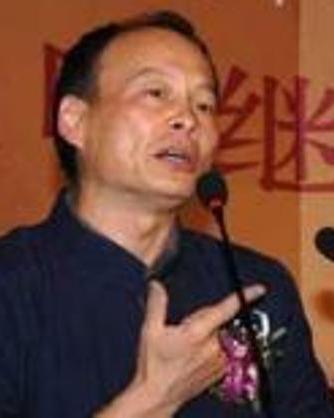
Shan shaojie
Shan Shaojie (1953-), scholar. Born in Hefei, Anhui Province, Shan graduated from Anhui Normal University in 1978, received his PhD in Philosophy from Renmin University in 1988, and then stayed at the university to teach, earning the title of professor. He is now retired. Shan's main areas of research include the history of Marxist philosophy, Western philosophy, and Chinese history. In 2001, Shan published a book entitled *Mao in Power (1949-1976)*, which analyzes Mao's ruling and evaluates his merits and faults from a philosophical point of view.
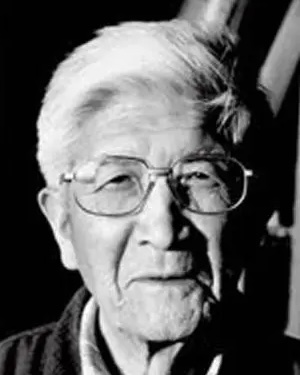
Xu Liangying
Xu Liangying (May 3, 1920 - January 28, 2013), a native of Linhai, Zhejiang Province, was a physicist, historian and philosopher of natural science, and a campaigner for democracy.
Xu graduated from the Physics Department of Zhejiang University in 1942 and then started teaching there in 1945. In 1946, he joined the Chinese Communist Party, and became the underground CCP party secretary at Zhejiang University in 1947. In 1950, he became an official of the Communist Youth League of China in Hangzhou City, before transferring to the Chinese Academy of Sciences (CAS) in 1952.
At the CAS, he once worked as a general censor, checking scientific papers for counter-revolutionary tendencies or content that jeopardized national security. In 1957, Xu was labeled a Rightist for criticizing the Anti-Rightist Campaign, expelled from public office and the CCP, and sent back to his hometown to work as a farmer for 20 years. After rehabilitation in 1978, Xu was reinstated to the CCP and returned to the CAS to work as a researcher at the Institute for the History of Natural Science.
Xu’s main research interest was history and philosophy of science, especially on Einstein's thoughts and the interrelationship between science and society. He published more than 200 papers and edited many books.
Believing that only freedom and democracy can promote scientific progress, Xu wrote articles calling for political reform, and twice initiated joint letters from scientists calling for improvement of the human rights situation in China.
In 2013, Xu passed away due to illness.
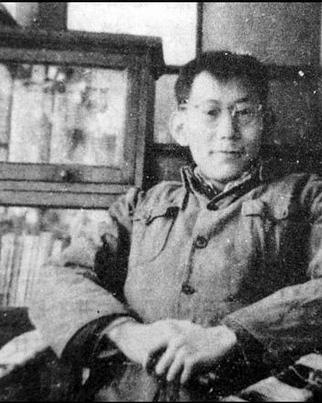
Yu Luoke
Yu Luoke (1942-1970) was a worker and writer. His parents were both labeled Rightists during the 1957 Anti-Rightist Campaign, which made him a child of one of the "Five Black Categories," which formed what was essentially a permanent underclass in Mao's China (the others were landlords, rich farmers, counter-revolutionaries, and bad elements). For Yu, that meant he was not admitted to the university even though he scored well in the college entrance exams several times. Instead, he worked as a farmer, a substitute teacher and other part-time jobs before being assigned to the Beijing People's Machine Factory as an apprentice. After the Cultural Revolution began, in July 1966, Yu Luoke wrote an article entitled "The Theory of Origin" to refute the then-dominant theory that held that family origin determines the development of an individual. Yu argued that origin has very little influence on the performance of an individual, and criticized the persecution of young people from “bad” families, pointing out that this was a serious violation of human rights. The article was later published in January 1967 in the first issue of the Middle School Cultural Revolution Newspaper, which was founded by his brother Yu Luowen, and scholar Mou Zhijing. Yu Luoke later published several articles on the issue of origin in the newspaper under the pseudonym "Study Group on Family Origin." The newspaper was widely distributed and had a great impact. The article was later labeled "a great poisonous weed." On January 5, 1968, Yu Luoke was arrested, and on March 5, 1970, he was sentenced to death at the Workers' Stadium in Beijing, at the age of 27, and was immediately executed. On November 21, 1979, the Beijing Intermediate People's Court acquitted him.
To commemorate him, his friends and family, as well as Chinese and foreign scholars and human rights activists, erected a statue of him in 2009 at the Songzhuang Art Gallery in Tongzhou, Beijing, which was later dismantled after more and more people were visiting the statute to pay their respects with flowers. Other activities to commemorate him have also often been obstructed by the authorities.

